 | TODAY IN SCIENCE HISTORY NEWSLETTER - 27 FEBRUARY |
| Feature for Today |
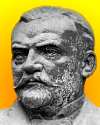 On 27 Feb 1879, the artificial sweetener, saccharin, was discovered by Constantin Fahlberg. He had been investigating products from coal tar, and one day, he went to have dinner, leaving the laboratory without washing his hands. On 27 Feb 1879, the artificial sweetener, saccharin, was discovered by Constantin Fahlberg. He had been investigating products from coal tar, and one day, he went to have dinner, leaving the laboratory without washing his hands.Oh, horror! The bane of every chemistry teacher, who drums it into the heads of every student to always wash your hands before leaving the lab. But for Fahlberg, this was a serendipitous act of neglect, as you can read in his own words in this article on the Discovery of Saccharine. |
| Book of the Day | |
| |
| Quotations for Today | |
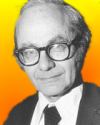 | "Those who think 'Science is Measurement' should search Darwin's works for numbers and equations." |
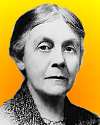 | "I don't know what your Company is feeling as of today about the work of Dr. Alice Hamilton on benzol poisoning. I know that back in the old days some of your boys used to think that she was a plain nuisance and just picking on you for luck. But I have a hunch that as you have learned more about the subject, men like your good self have grown to realize the debt that society owes her for her crusade. I am pretty sure that she has saved the lives of a great many girls in can-making plants and I would hate to think that you didn't agree with me." |
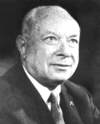 | "Freedom is the oxygen without which science cannot breathe." |
| QUIZ | |
| Before you look at today's web page, see if you can answer some of these questions about the events that happened on this day. Some of the names are very familiar. Others will likely stump you. Tickle your curiosity with these questions, then check your answers on today's web page. | |
| Births | |
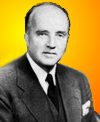 |  Charles Herbert Best, born 27 Feb 1899, was an American physiologist who, with Sir Frederick Banting, was the first to obtain (1921) a pancreatic extract of insulin in a form that controlled diabetes in the test animals. The successful use of insulin in treating human patients followed. Banting won a share of the 1923 Nobel Prize for Physiology of Medicine; Best could not. Charles Herbert Best, born 27 Feb 1899, was an American physiologist who, with Sir Frederick Banting, was the first to obtain (1921) a pancreatic extract of insulin in a form that controlled diabetes in the test animals. The successful use of insulin in treating human patients followed. Banting won a share of the 1923 Nobel Prize for Physiology of Medicine; Best could not. |
 |  On 27 Feb 1891, an American pioneer in the development of both radio and television broadcasting. His was a wireless operator for American Marconi and later its commercial manager. He foresaw that radio would become "a household utility in the same sense as the piano or phonograph." He was the first general manager of RCA and founded the television network NBC (1926). On 27 Feb 1891, an American pioneer in the development of both radio and television broadcasting. His was a wireless operator for American Marconi and later its commercial manager. He foresaw that radio would become "a household utility in the same sense as the piano or phonograph." He was the first general manager of RCA and founded the television network NBC (1926). |
| Deaths | |
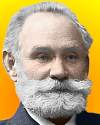 |  A Russian physiologist (1849-1936) is known chiefly for his development of the concept of the conditioned reflex. In a now-classic experiment, he trained a hungry dog to salivate at the sound of a bell, which was previously associated with the sight of food. He received the 1904 Nobel Prize in Physiology or Medicine. A Russian physiologist (1849-1936) is known chiefly for his development of the concept of the conditioned reflex. In a now-classic experiment, he trained a hungry dog to salivate at the sound of a bell, which was previously associated with the sight of food. He received the 1904 Nobel Prize in Physiology or Medicine. |
| Events | |
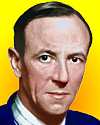 |  On 27 Feb of a certain year, the neutron was discovered by Dr. James Chadwick On 27 Feb of a certain year, the neutron was discovered by Dr. James Chadwick |
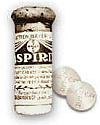 |  On 27 Feb of a certain year Felix Hoffman was issued a U.S. patent for aspirin. On 27 Feb of a certain year Felix Hoffman was issued a U.S. patent for aspirin.  In which decade was this patent issued in the U.S.? In which decade was this patent issued in the U.S.? |
| Answers |
When you have your answers ready to all the questions above, you'll find all the information to check them, and more, on the February 27 web page of Today in Science History. Or, try this link first for just the brief answers. Fast answers for the previous newsletter for February 26: the Evershed effect is the horizontal motion of gases outward from the centres of sunspots; Levi Strauss; canals; the decade including the year 1935; uranium. |
| Feedback |
 If you enjoy this newsletter, the website, or wish to offer encouragement or ideas, please send feedback by using your mail reader Reply button. If you enjoy this newsletter, the website, or wish to offer encouragement or ideas, please send feedback by using your mail reader Reply button. |
--
If you do not want to receive any more newsletters, this link
To update your preferences and to unsubscribe visit this link
If you do not want to receive any more newsletters, this link
To update your preferences and to unsubscribe visit this link
! !



Δεν υπάρχουν σχόλια:
Δημοσίευση σχολίου